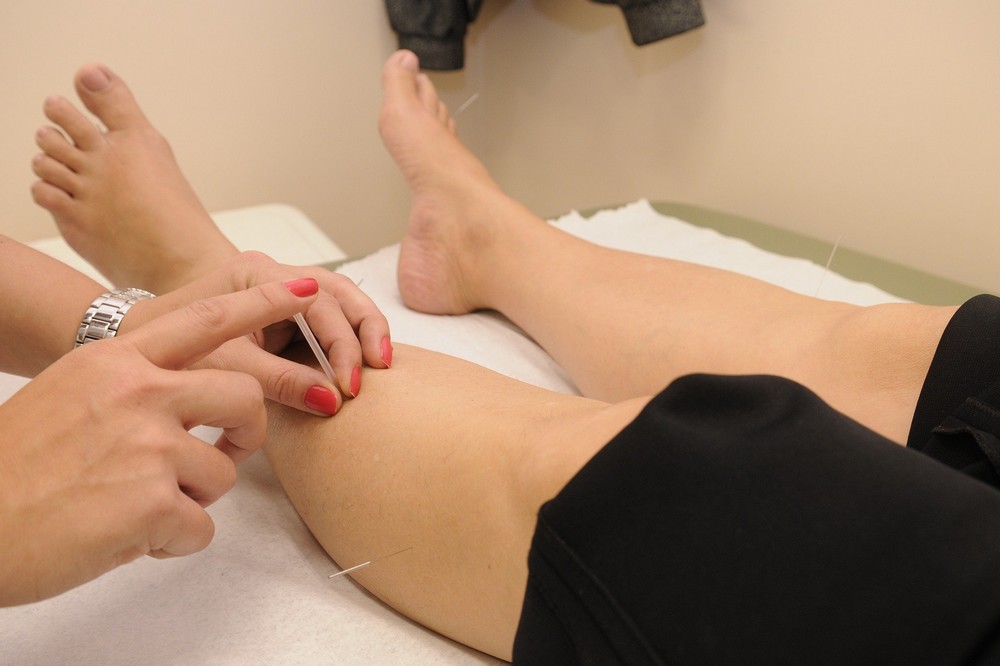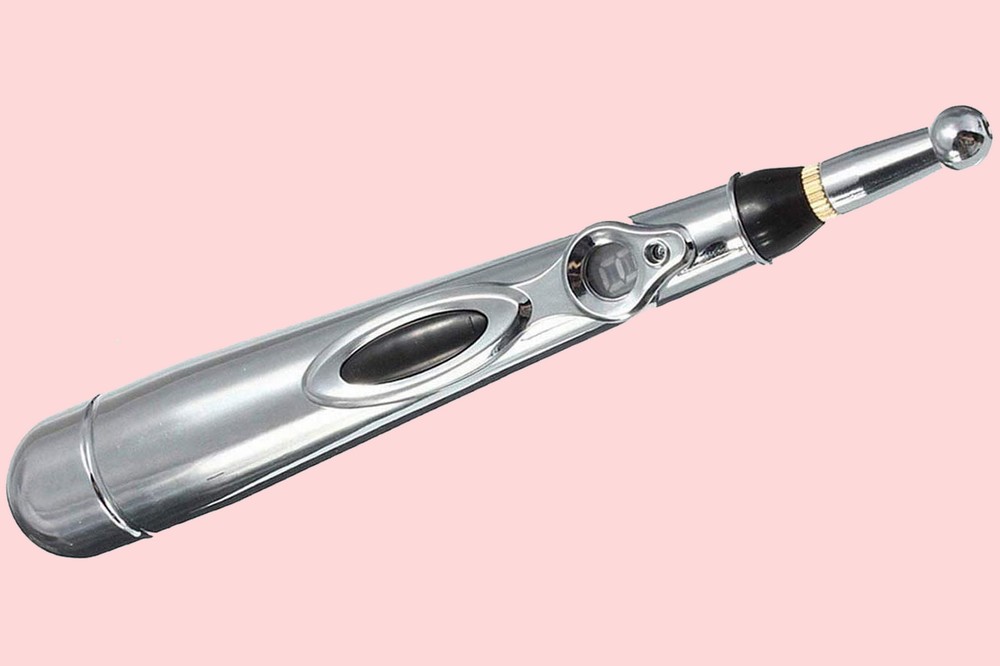Acupuncture for Fibromyalgia Pain

How Acupuncture for Fibromyalgia pain, fatigue and depression works. Traditional Chinese Medicine can cure Fibromyalgia, chronic pain and chronic fatigue.
Traditional Chinese Medicine (TCM) acupuncture is a therapeutic technique that forms an integral part of TCM, a comprehensive system of medicine that has been practiced for thousands of years in China and other parts of East Asia. Acupuncture involves the insertion of thin, sterile needles into specific points on the body to stimulate and regulate the flow of Qi (pronounced "chee"), the vital energy believed to circulate along meridians or energy pathways.
Traditional Chinese Medicine Acupuncture for Fibromyalgia Pain
According to Traditional Chinese Medicine (TCM) principles, Fibromyalgia pain and chronic fatigue are seen as manifestations of imbalances in the flow of Qi (vital energy) and disharmonies within the body. Acupuncture, as a component of TCM, aims to restore balance and promote the smooth flow of Qi, thereby addressing these symptoms. Here's how TCM acupuncture can work for Fibromyalgia pain and chronic fatigue:
Acupuncture for Fibromyalgia Pain via
Qi Regulation
TCM views Fibromyalgia pain and chronic fatigue as disruptions in the flow of Qi. Acupuncture helps regulate the flow of Qi along the meridians by stimulating specific acupuncture points. By inserting needles at relevant points, acupuncturists aim to restore the proper balance and circulation of Qi throughout the body. This can help alleviate pain and improve energy levels.
Acupuncture for Fibromyalgia Pain Management
Acupuncture has been shown to have analgesic effects, making it an effective modality for managing pain associated with Fibromyalgia. The stimulation of acupuncture points triggers the release of endorphins, which are natural pain-relieving substances. Acupuncture can also help relax muscles, reduce inflammation, and improve blood circulation, leading to pain reduction and improved overall well-being.
Acupuncture for Fibromyalgia Pain via Nervous System Regulation
TCM believes that Fibromyalgia pain and chronic fatigue are related to imbalances in the nervous system. Acupuncture has been found to modulate the autonomic nervous system, which controls bodily functions. By regulating the sympathetic and parasympathetic branches of the autonomic nervous system, acupuncture can help rebalance the body and relieve symptoms such as fatigue, insomnia, and anxiety often associated with Fibromyalgia.
Acupuncture for Fibromyalgia Pain for
Hormonal Balance
Hormonal imbalances, such as disruptions in the hypothalamic-pituitary-adrenal (HPA) axis, are common in Fibromyalgia. Acupuncture has been shown to influence the release of various hormones and neuropeptides, including cortisol, serotonin, and endorphins, which can help regulate the HPA axis and restore hormonal balance. This may contribute to improved energy levels and reduced fatigue.
Acupuncture for Fibromyalgia Pain for
Psychological Support
Fibromyalgia is often accompanied by emotional and psychological distress, including anxiety and depression. Acupuncture has been found to have anxiolytic and antidepressant effects, helping to alleviate these symptoms and improve overall mental well-being. By promoting relaxation and balancing neurotransmitters, acupuncture can positively impact the emotional aspects of Fibromyalgia.
Electric Acupuncture for Fibromyalgia Pain
Electric Acupuncture also known as Electro Acupuncture is an effective treatment for Fibromyalgia pain and fatigue allowing an increase in blood and Qi flow.
In Traditional Chinese Medicine acupuncture is used to enhance the flow of Qi or energy throughout the energy channels or meridians within the body. If Qi does not flow freely and smoothly ill health will occur.
People suffering with Fibromyalgia have blocked or stagnant Qi which is caused by chronic stress and anxiety. This leads to the many and varied Fibromyalgia symptoms including muscle stiffness, muscle aches and pains, chronic fatigue, depression, anxiety and many more.
As with traditional acupuncture needles are inserted to specific areas at the desired points with the aim of allowing Qi to flow freely. Electrodes are attached and low pulsating electrical currents are sent through the acupuncture needles.
The intensity of the electrical currents significantly enhances the power and therapeutic effects of traditional acupuncture.
My Experience of Acupuncture for Fibromyalgia Symptoms
It's important to note that the effectiveness of acupuncture for Fibromyalgia may vary from person to person. Some individuals may experience significant relief, while others may find it no self helpful.
Because of the Covid pandemic hands-on treatments such as massage and even some forms of Physiotherapy we're not allowed but acupuncture was, so because this was the only available treatment for my very painful fibromyalgia symptoms I began weekly sessions of acupuncture.
I had an hour-long telephone interview with the acupuncturist and at length we discussed all of my health issues. Following his initial session I attended her clinic and she explained in detail what she was doing and why she was doing it. She was very knowledgeable as she had trained at university to become a qualified Chinese medicine acupuncturist and had even studied in Taiwan for a time.
So I felt very confident that she was very experienced and qualified. Over many months I had weekly acupuncture appointments and it did help somewhat but the pains never fully disappeared. The acupuncture was having some positive effects but not a long-lasting. But because of the Covid pandemic restrictions it was the only treatment I could receive. So that's what I went with as some relief is better than none at all.
When the Covid restrictions were lifted I decided not to continue with acupuncture and instead went back to having massage therapy which I found to be more effective than acupuncture for my Fibromyalgia pain.
My Experience of Electric Acupuncture for Fibromyalgia Symptoms
After many traditional acupuncture sessions my acupuncturist suggested she used her newly acquired Electric acupuncture machine on me. She had experienced very good results with some of her other clients and was keen for me to try it.
She placed various acupuncture needles in my lower back and proceeded to attach them to electrodes. She slowly turned on the Electric acupuncture machine and increased the frequency strength to a degree I felt comfortable with.
I already had a great deal of experience with TENs machines and the sensations were just the same. I felt very relaxed and comfortable. After a 20 minute session she removed the acupuncture needles and gave me a quick back massage. My lower back pain had disappeared and I felt great. This was a pain I had literally had for years. Knowing that just one treatment could not possibly cure me completely I immediately made further appointments but the
Covid pandemic
put a stop to my treatments.
Acupressure Pen for Fibromyalgia Symptoms

An acupressure pen, (sometimes referred to as an acupuncture pen) is something you can buy quite cheaply from Amazon. Using an acupressure pen is something you can do for yourself and does not require help from anyone else. Basically an acupressure pen is a hand held electronic massager that looks a little like a pen. It does not have a needle and cannot be inserted into the skin like an acupuncture needle.
You need to have some knowledge of acupressure points so you can direct the pen to the correct areas on your body but full simple instructions are given. An acupressure pen is very easy to use and gives some good results for the symptoms of Fibromyalgia including pain relief and fatigue.
I use my acupressure pen in between appointments to supplement and enhance any professional acupuncture treatments I receive. For example I was experiencing terrible night sweats which would awaken me and disturb my sleep. I mentioned this to my acupuncturist who suggested I used my acupressure pen on Kidney 7 and Heart 6 acupressure points. And sure enough in time my night sweats lessened.
Acupressure Mat for Fibromyalgia Symptoms

I was recommended to buy an acupressure mat by my massage therapist who had heard people had got such great results from lying on it.
I went ahead and bought one from Amazon and I found it to be very relaxing. It certainly soothed my Fibromyalgia pain and helped with fatigue. I have written much more about the benefits of an Acupressure Mat.
Studies conducted to investigate the effects of Acupuncture on Fibromyalgia
Numerous studies have been conducted to investigate the effects of acupuncture on Fibromyalgia. While the precise mechanisms of how acupuncture works for Fibromyalgia are not fully understood, several hypotheses have been proposed. Here are some key findings from relevant studies:
1. Pain Relief: Acupuncture has been shown to provide pain relief for individuals with Fibromyalgia. A systematic review and meta-analysis published in 2013 in the Journal of Pain found that acupuncture was significantly more effective than sham acupuncture or standard care in reducing pain intensity. The study suggested that acupuncture may activate various mechanisms, including the release of endogenous opioids and modulation of neurotransmitters, to achieve analgesic effects.
2. Central Nervous System Modulation: Fibromyalgia is believed to involve alterations in the central nervous system's processing of pain signals. Acupuncture has been found to modulate the central pain pathways and regulate pain perception. Functional magnetic resonance imaging (fMRI) studies have shown that acupuncture can affect brain activity in regions involved in pain processing and regulation, such as the insula, prefrontal cortex, and limbic system.
3. Neurotransmitter Regulation: Acupuncture has been found to influence the release and activity of various neurotransmitters associated with pain modulation and mood regulation. Studies have shown that acupuncture can increase the levels of endorphins, serotonin, and norepinephrine while reducing substance P, a neuropeptide associated with pain transmission.
4. Anti-inflammatory Effects: Inflammation is thought to play a role in the pathophysiology of Fibromyalgia. Some studies suggest that acupuncture may have anti-inflammatory effects, helping to reduce inflammation and related symptoms. Acupuncture has been found to decrease levels of pro-inflammatory cytokines and increase anti-inflammatory cytokines in individuals with Fibromyalgia.
5. Modulation of the Autonomic Nervous System: Fibromyalgia is associated with autonomic dysregulation, including sympathetic hyperactivity and parasympathetic dysfunction. Acupuncture has been shown to regulate the autonomic nervous system, promoting balance between sympathetic and parasympathetic activities. This can help reduce symptoms such as fatigue, sleep disturbances, and anxiety commonly experienced by individuals with Fibromyalgia.